No other game comes close to Disco Elysium
The incomparable RPG has earned its second year at the peak of our Top 100.
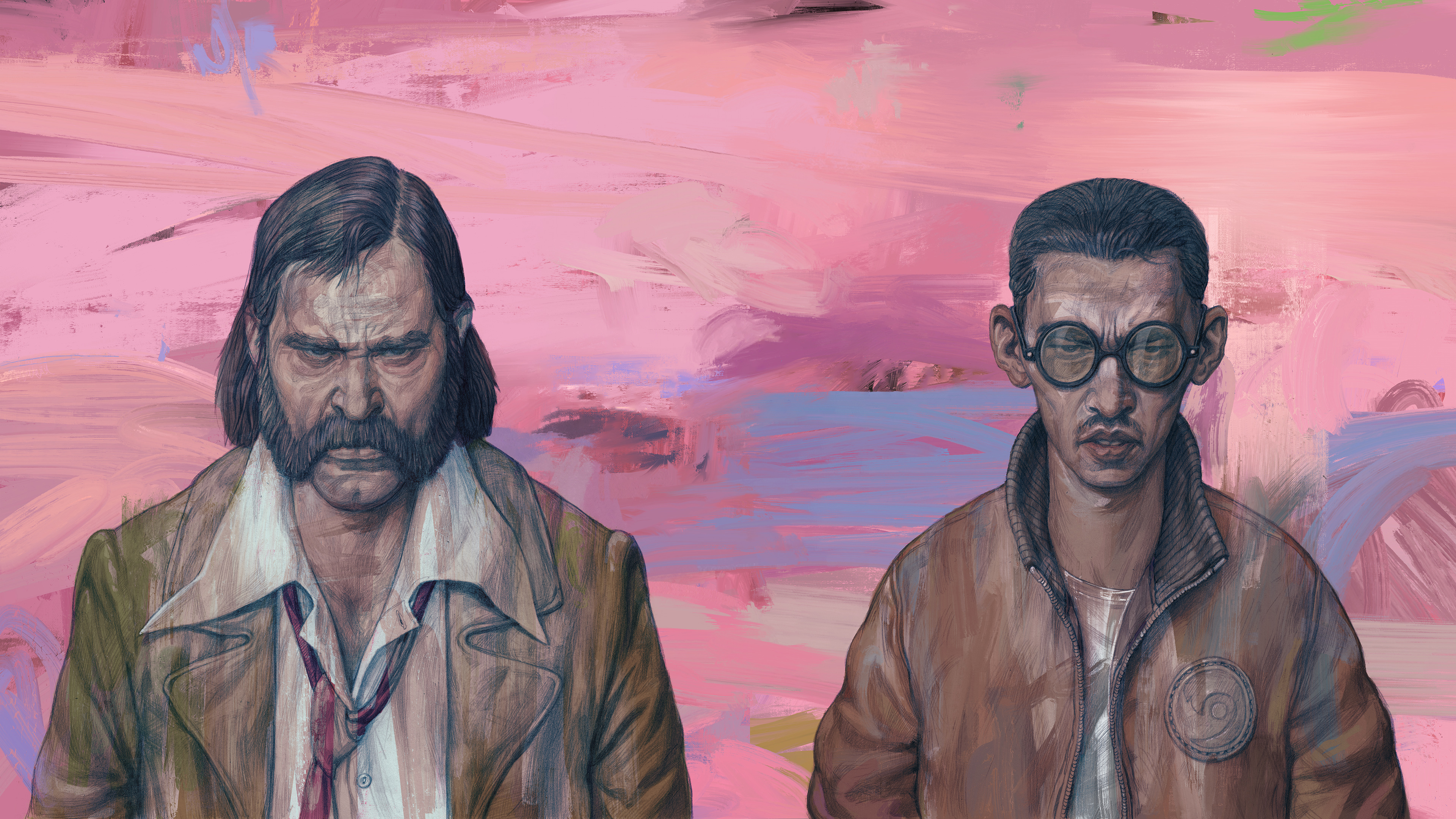
A corpse dangling from a tree. A forgetful detective with terrible taste in ties. A sidekick with an absolutely cracking jacket. Disco Elysium, which launched in 2019 but nonetheless feels like it's always been here, is hard to define or summarise. But hardly a day has gone by without me sparing it a thought. Or two. Or three. For the second year running it's snatched the number one spot in our Top 100 games list, and I wouldn't be surprised to find myself recommending it stay there in 2022.
Not long after its arrival, I compared it to fellow RPG The Outer Worlds, noting that playing Disco Elysium first utterly ruined the experience of Obsidian's sci-fi romp. Compared to my misadventures in Revachol, it felt antiquated and safe. This was a sentiment, it turned out, that was shared by a lot of people similarly struggling to enjoy a formulaic RPG after seeing what RPGs could really be—more than alignments and karma and combat. My fear was that The Outer Worlds wasn't an exception, that no other game could compare.
Nearly two years later, this has not changed.
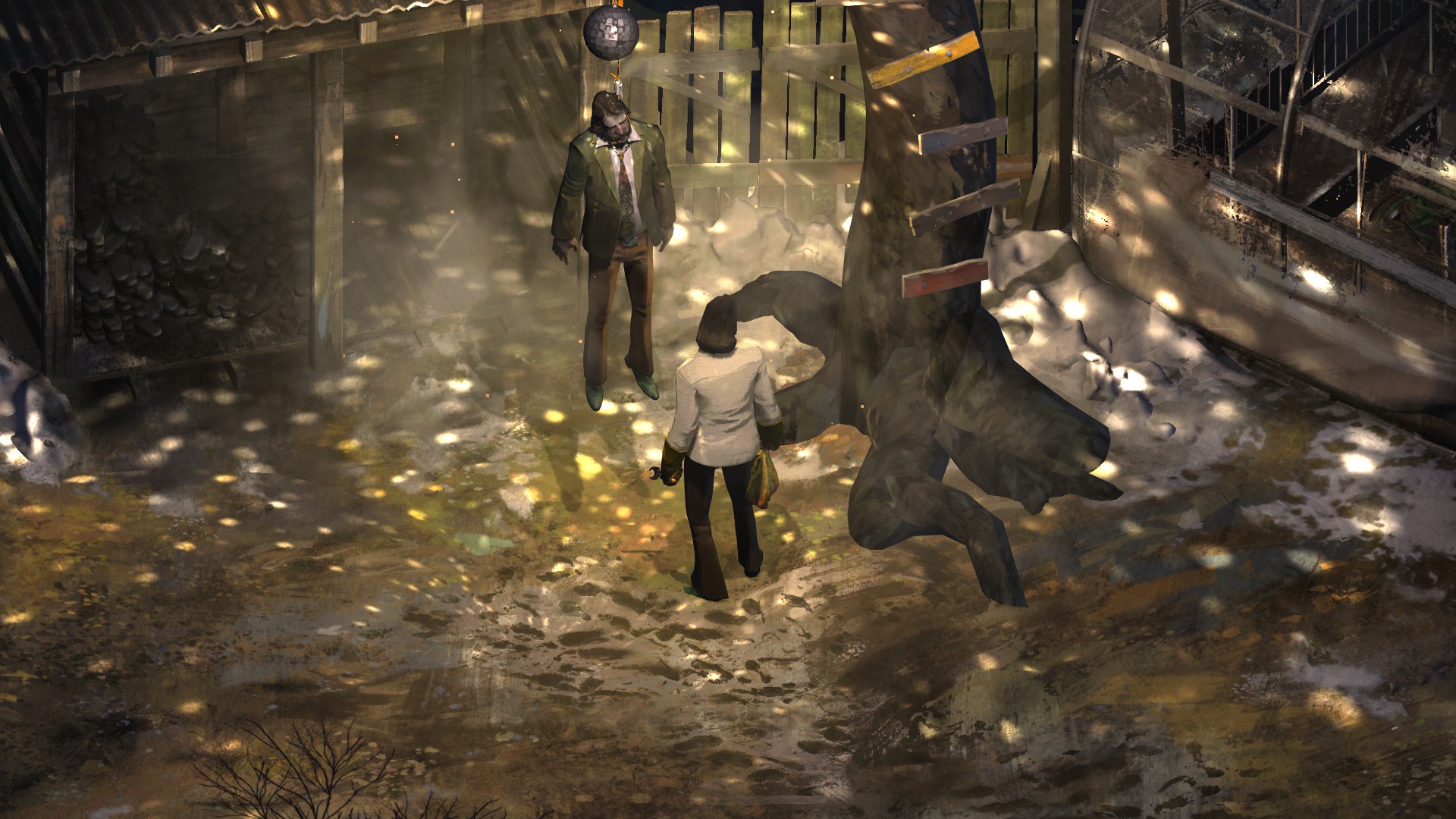
I've had a lot of videogame obsessions, but I don't think any of them have affected me in quite the same way as Disco Elysium. I mean, sure, it's hard to play an immersive sim without comparing it to the king, Dishonored 2, and for decades—until Disco Elysium, in fact—I've been praying for an RPG as smart and weird as Planescape: Torment, but I'm not sure they changed the way I think about games. Certainly not as much as Disco Elysium, which hasn't seen an RPG trope it didn't want to subvert.
It wormed its way into my mind through so many different paths, but what impressed me the most, and still does, is the way it almost brazenly embraces politics. It's hard to find a game unaffected by politics—it's there even when it's not explicit in the narrative, and even when developers are trained to deny it. But politics has also become a dirty word in the less inquisitive corners of our huge hobby, so any game attempting to say, well, anything risks getting attacked, or worse: becoming a victim of the Twitter discourse. But here's this game that peels apart capitalism, communism, fascism, addiction and crimes against fashion. Nothing is sacred, yet there's a sensitivity and thoughtfulness that makes the medicine go down easier.
There are intimate conversations that will pummel your heart and make you well up, and then five minutes later you can be internalising a deeply racist ideology to befriend an important NPC. So much about Disco Elysium makes me feel uncomfortable and challenged, and not because I've had to spend hours learning how to precisely time my dodges. And that's such a huge risk, pissing off both the apolitical crowd and people who'd rather not see a game let you become a racist authoritarian arsehole.
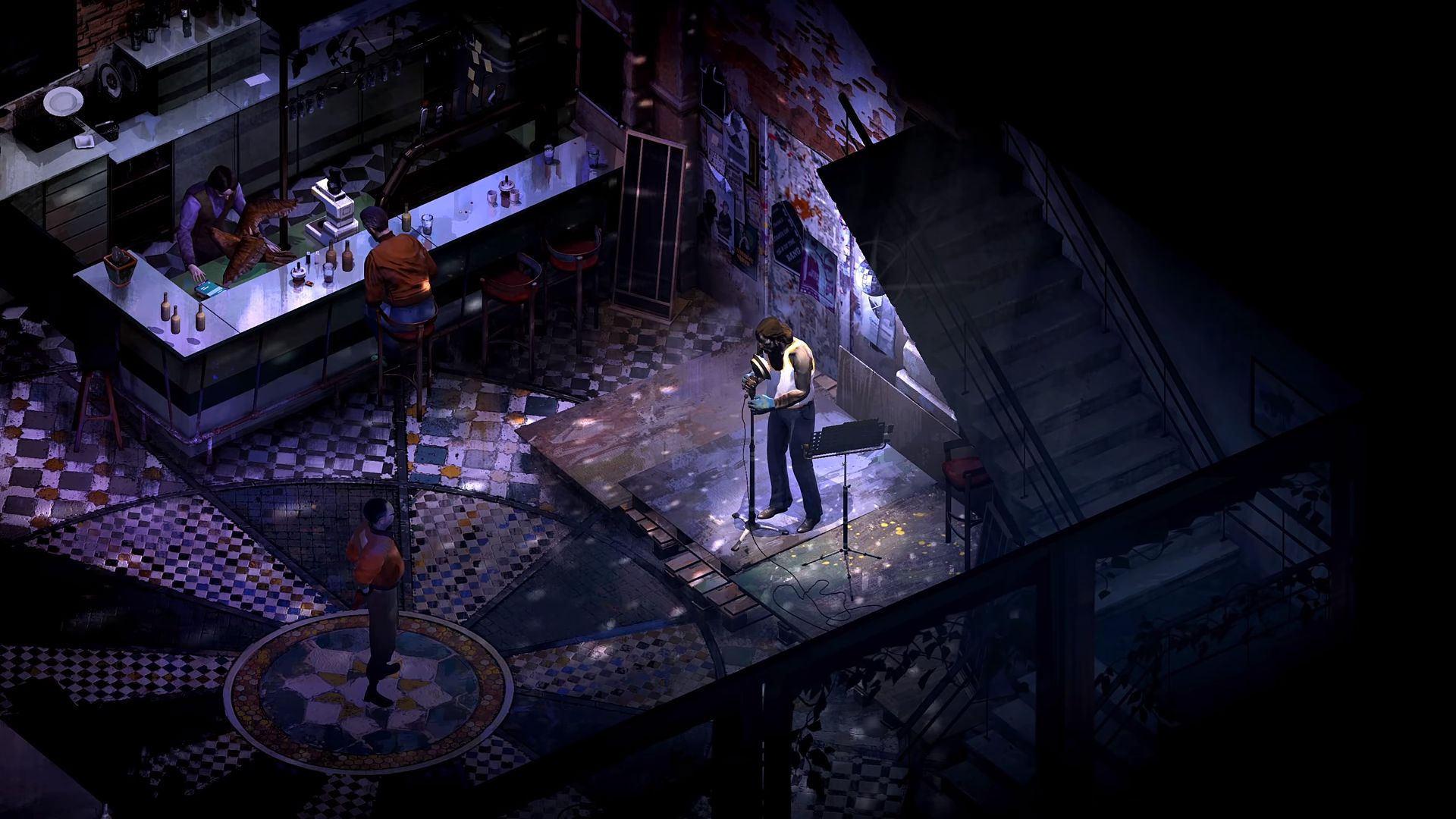
But Disco Elysium has to let you make these choices if it's going to dig into these ideologies. You are the arrow in the game's political compass. It calls to mind one of my favourite films, Trainspotting, which was initially criticised by pearl-clutching conservatives for "glorifying" drug addiction. This is a film where a man imagines that he's crawling through a shit-smeared toilet to get his fix, where we see someone end their life in a flat filled with cat feces, but people were scared it would make heroin seem sexy.
The biggest gaming news, reviews and hardware deals
Keep up to date with the most important stories and the best deals, as picked by the PC Gamer team.
For a videogame comparison, we only have to look to the recent Boyfriend Dungeon launch. The backlash here came from the other end of the political spectrum, with some players criticising Kitfox Games for not providing content warnings or letting people know about the darker elements of what, to be fair, looks pretty light-hearted on the surface. These complaints were understandable, but there were also critics who seemed to think that queer narratives shouldn't have any problematic elements. Some even suggested that it needed an option to turn off the game's antagonist, whose voice actor was also harassed for playing a villain. It's unfortunate that this recent glut of otherwise welcome 'wholesome' games means that this mature dating sim is being held to an unreasonable standard.
One of the most frustrating things about writing about videogames is the knowledge that the moment you present a game that's remotely smart or has the vaguest hint of interest in politics, it's going be called "woke" or "SJW trash" by the Robocop-isn't-political lads. Games have only gone from strength to strength as the industry has matured, but it's an uphill struggle. It sucks, but it's not hard to understand why big publishers often try to downplay political themes. To be clear, it's ineffective and cowardly, and it does a disservice to the devs, but the backlash for admitting that your game might actually be about more than shooting dudes in the head is always exhausting.
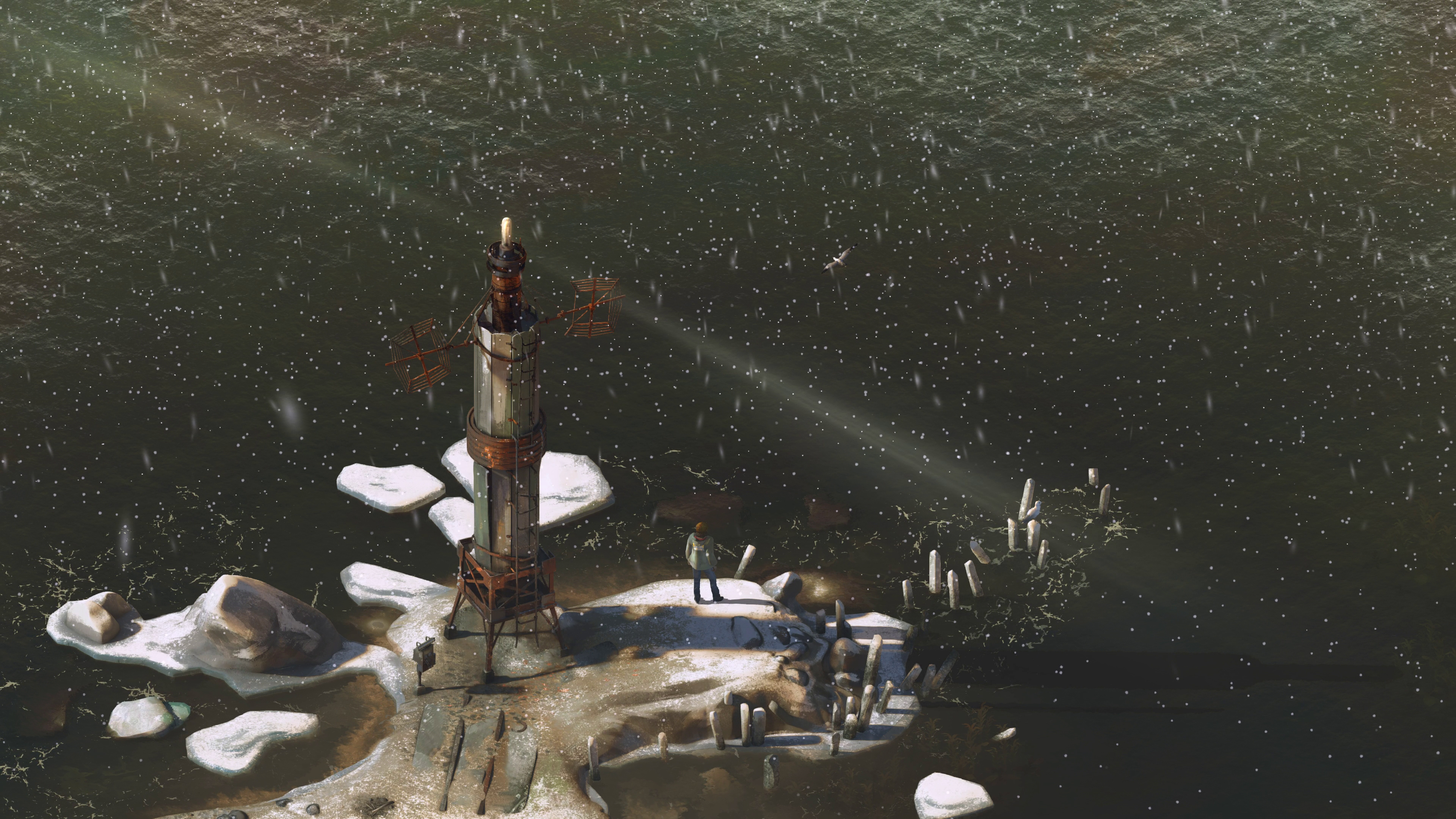
With this in mind, there was almost something uplifting about the popularity of Disco Elysium. Though I'm sure they probably exist, I saw no takes about how it's pushing a dangerous ideology, and none of the complaints about politics invading the pure realm of videogames. For all its complexities and uncomfortable scenes, people just seemed to get it—and want more of it.
I think it can be hard for us to express how we want games to tackle difficult subjects. I want more games to explore racism and homophobia, but I'm still working out how I feel about characters in videogames spouting racist or homophobic slurs. That's something ZAUM wrestled with as well. Cuno, an abrasive teen and potential sidekick, lives to offend, and one of his favourite words is extremely homophobic. Cuno uses it a lot, but it's censored in both the text and audio. It's slightly awkward, and stands out in a game that otherwise doesn't hold back when it comes to trying to elicit disgust, but it also speaks to the game's humanity. We know what Cuno is saying, it still has an impact, it still tells us a lot about Cuno's desire to shock and upset, so do we actually need to hear the word—one that has been used as a weapon against people playing the game?
There's so much more to it than ideologies and politics, though. It reimagines the RPG genre, cutting out combat and other metrics for success, and giving us the greatest skill system any game has ever had. Screw your DEX and CON rolls, for this quest you have to rely on your flair for the dramatic and your ability to get off your tits on whatever drugs are lying around. If Disco Elysium stopped there, with its wild and esoteric skills and 'Thought Cabinet', it would still be more creative than pretty much all of its peers, but then it goes ahead and makes each skill a talkative part of your subconscious—sublime.
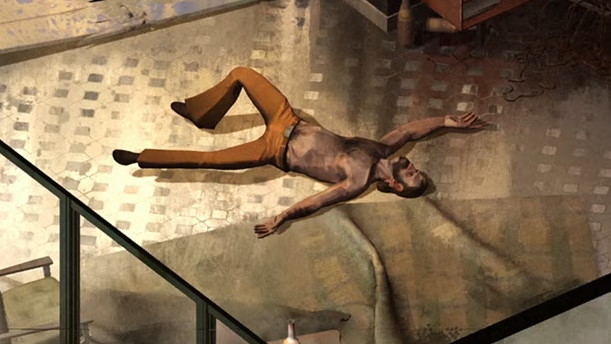
When I wrapped up my detective's story in 2019, I couldn't think of anything I'd change. It was as close to perfect as any game I'd ever played. But ZAUM found a way to make it better, anyway. The bastards. The Final Cut's extra quests mean there's a proper conclusion to your political journey, not just your personal one, but it's the full voice acting that really has a transformative impact. The cast works magic with ZAUM's text, breathing life into these characters, their attitudes, their accents, which in turn tell the story of Revachol, with its melting pot of nationalities and beliefs, with much greater clarity. It's Lenval Brown who steals the show, however, giving a voice to your subconscious. His domain is the largest, as he's the voice behind every skill and bit of narration. He's the voice of Disco Elysium, really, and I can't imagine it without him.
I fired up the game again recently, needing to capture some footage for its Top 100 video. I only needed 20 minutes, but I played for an hour, losing myself in Revachol yet again. There were parts I'd forgotten about, and lines I never heard because I made different choices. I found myself laughing and cringing and grimacing once more as my bumbling detective attempted to shake down a cafe manager and tried—but failed—to punch a child in the face. I'm looking at my backlog again and all I want to do is play more Disco Elysium.
It's going to take some doing knocking this off the top spot.

Fraser is the UK online editor and has actually met The Internet in person. With over a decade of experience, he's been around the block a few times, serving as a freelancer, news editor and prolific reviewer. Strategy games have been a 30-year-long obsession, from tiny RTSs to sprawling political sims, and he never turns down the chance to rave about Total War or Crusader Kings. He's also been known to set up shop in the latest MMO and likes to wind down with an endlessly deep, systemic RPG. These days, when he's not editing, he can usually be found writing features that are 1,000 words too long or talking about his dog.

